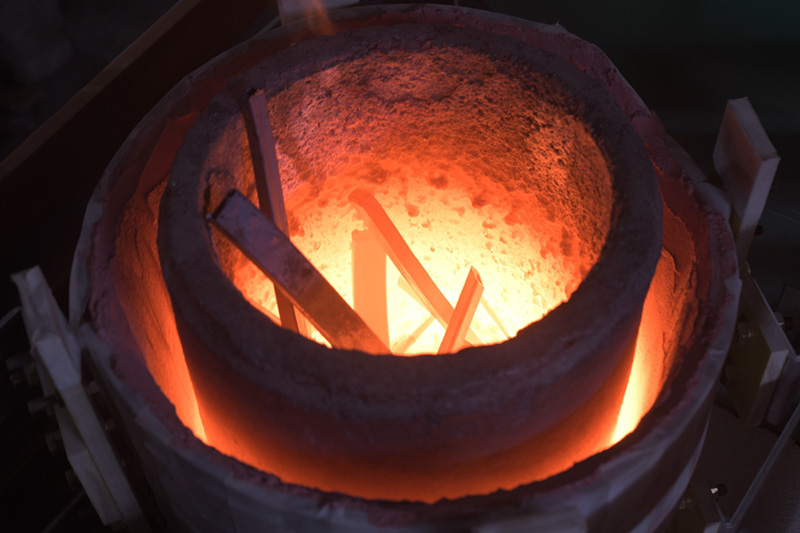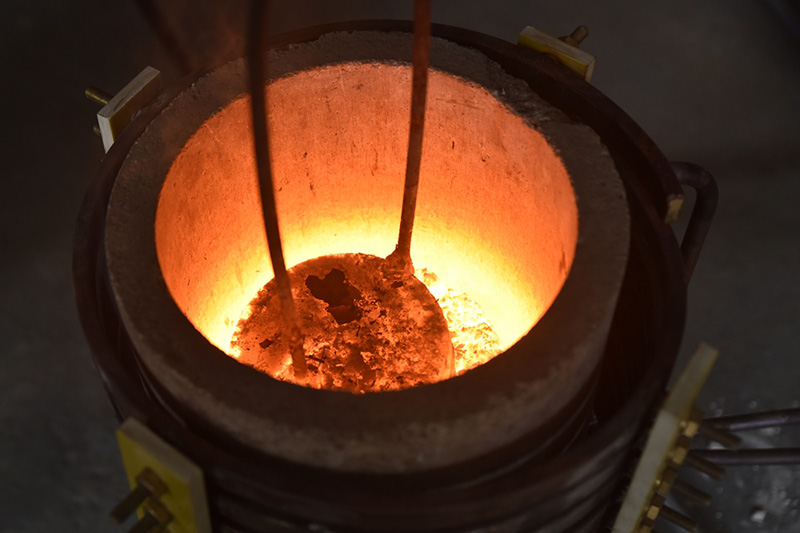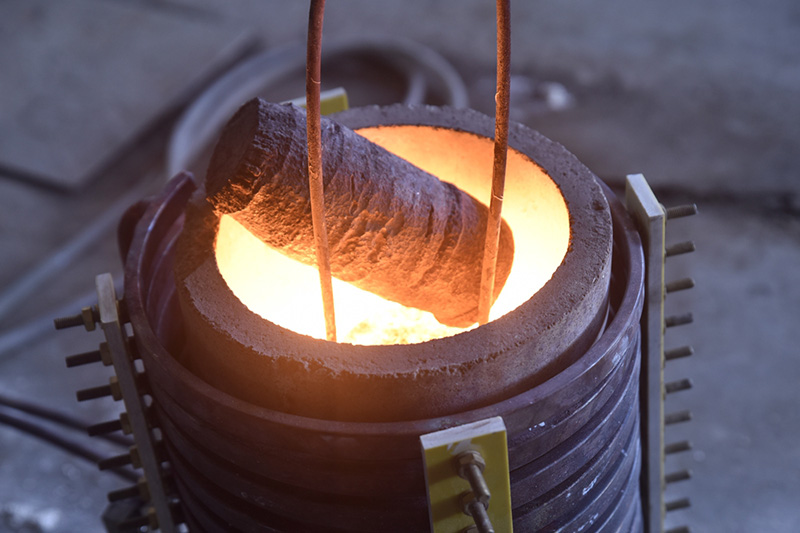Search
Categories
More
Tags
Definition of induction melting
Induction melting is to melt solid metal into liquid by using the heat generated by electromagnetic induction and electrothermal conversion. It is a clean, non-contact, energy-efficient and well-controlled smelting process. With the development of power industry, induction melting has been widely used in the production of metals and their alloys. The capacity, mechanization and automation level of induction smelting equipment are improving.
Crucible selection
Crucible type | Max operating temp | Applicable melting materials |
Pure graphite crucible + quartz sleeve | 1800 °C | Gold, silver, other precious metals |
Clay graphite crucible | 1600 °C | Copper |
SIC crucible | 1600 °C | Copper, aluminum, aluminum alloy |
Magnesia crucible | 2000 °C | Iron, steel, stainless steel |
Zirconia crucible | 2200 °C | Titanium alloy, nickel alloy |
Brass smelting and casting Video
Advantages of induction melting
■ Small in size, light in weight
■ Easy to operate
■ Can work 24 hours a day
■ Fast, uniform and clean melting
■ Energy saving 15-20%
■ Environmental protection - 0 pollution, 0 emissions
■ Good working environment - no open flames, low ambient temp, less oil fume
■ The smelting capacity ranges from several kilograms to several hundred kilograms
Applications of induction annealing
The induction melting system is suitable not only for factory production, but also for small-scale melting in schools and research institutes. The systems melt a wide range of metals, even ferrous to non-ferrous, such as gold, silver, copper, iron, stainless steel, steel, aluminium and aluminium alloys.
















